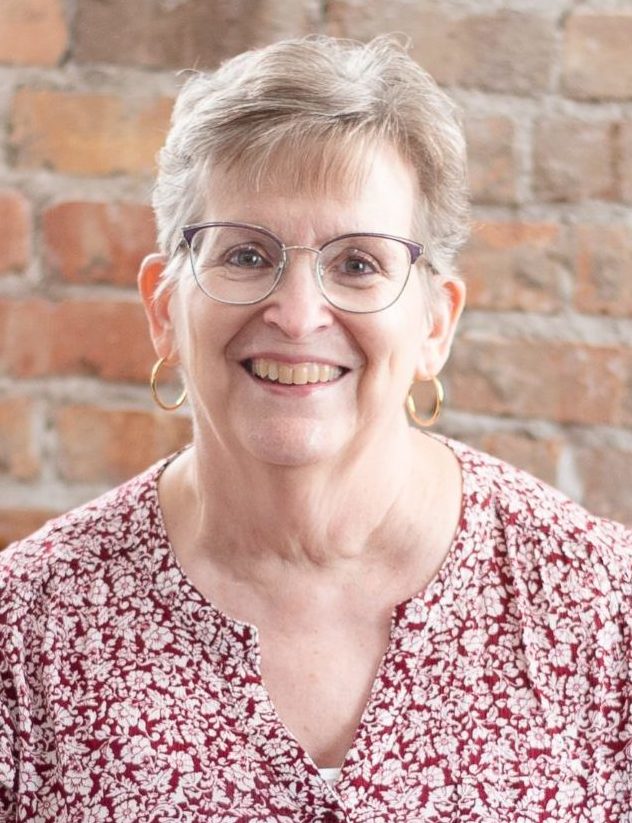When the Smithfield Foods pork-processing plant in Sioux Falls, S.D., closed April 15, 2020, it was one of the nation’s largest COVID-19 hotspots, with 644 cases. Among those impacted by the layoffs were 11 families from New Jerusalem Temple, a USMB congregation in Sioux Falls composed of immigrants from DR Congo.
Some families struggled to meet their most basic needs of groceries and rent, says Claude Tambatamba, a New Jerusalem Temple leader who came to the U.S. with his family in 2014. When furloughed workers tried to apply for unemployment, the process was challenging because government offices were closed. The application process had moved online, and few immigrants had Internet or computers.
“The church community has been their lifeline,” says Rick Eshbaugh, Central District Conference minister.
To help these families and nine other individuals who had recently arrived in the U.S., New Jerusalem Temple drew on its own cash reserves, which were quickly depleted. So, the church itself needed a lifeline.
For New Jerusalem that support came from the COVID-19 Church Relief Fund established by MB Foundation, the stewardship ministry that serves U.S. Mennonite Brethren.
“Immediately after churches were being told to not gather together in large groups, we knew this would present a financial hardship, for most, if not all, of our churches,” says Jon Wiebe, president and CEO of MB Foundation.
The fund was established through the generosity of a donor and a matched gift by MB Foundation, for a total of $50,000. A contribution from the Southern District Conference brought the matching fund to $60,000.
MB Foundation and USMB combined efforts to encourage generosity to the fund on Giving Tuesday Now May 5, a national day of giving. With matched dollars, $32,426 was added to the fund in one day.
Individuals and churches as well as the Pacific and Central District Conferences also contributed to the fund, and MB Foundation made a second contribution of $350,000. As of June 5, the total contributed to the COVID-19 Church Relief Fund stood at $501,628.
As of June 15, 49 churches have applied for grants and all were awarded funds ranging from $2,500 to $5,000, says Don Morris, USMB national director who, together with the five district ministers, is administering the funds.
New Jerusalem received their grant in two installments. With the first, the church contributed toward three families’ rent and bought groceries for nine more families with the greatest need—48 people in all.
“They were truly hungry,” Tambatamba said. After receiving the unexpected gifts of food, he adds, “some of them were emotional.”
The second installment helped four more families with rent and groceries.
A number of Congolese congregations connected with USMB also received grants.
“The funds we send to these churches from the Church Relief Fund will replenish their depleted accounts so they can continue to support their community,” says Eshbaugh.
Hispanic congregations in the Pacific District Conference also received COVID-19 Church Relief Fund grants. Many from these congregations work in sectors hard hit by COVID-19, and the grants enabled churches to assist families with food, utilities and other immediate needs.
For example, Ramon and Nydia Arguello, pastors of Primera Iglesia Hispana Ebenezer in Portland, Oregon, used the grant to meet the needs of families who were diagnosed with COVID-19.
Xavier Pinã, chair of the PDC Hispanic Council, says, “Hispanic churches were also able to reach out into their local communities and utilize the resources to continue with ministry opportunities. Even though the church buildings were closed, the church community remained active with kingdom work.”
When churches could not hold services due to guidelines limiting the size of public gatherings, Hispanic congregations were severely impacted, says Pinã. Churches led by bi-vocational pastors were not eligible for the Payroll Protections Program (PPP) that was part of the coronavirus aid bill. These churches also typically take cash offerings for church expenses and are not inclined or equipped to move ministries online, including church giving, says Pinã.
“The COVID-19 outbreak has created a realization within our Hispanic churches to embrace technology and utilize it as a vehicle to continue to reach out to congregants during the church building closure period,” says Pinã.
Churches continue to apply for grants from the COVID-19 Church Relief Fund, Morris says. The total amount distributed as of June 30 is $246,228.44


Connie Faber joined the magazine staff in 1994 and assumed the duties of editor in 2004. She has won awards from the Evangelical Press Association for her writing and editing. Faber is the co-author of Family Matters: Discovering the Mennonite Brethren. She and her husband, David, have two daughters, one son, one daughter-in-law, one son-in-law and two grandchildren. They are members of Ebenfeld MB Church in Hillsboro, Kansas.



















